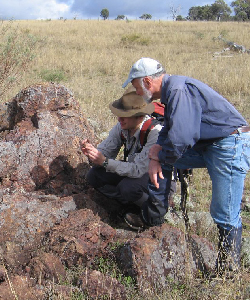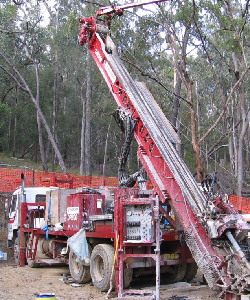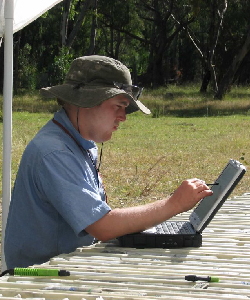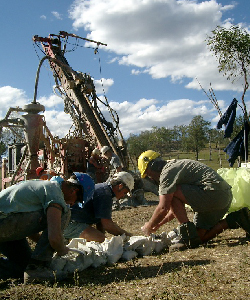Speakers
Our contributors comprise eminent geoscientists of national and international renown who will deliver a high quality technical program and speakers include:
Keynote address by Dr Richard Sillitoe
Scott Halley (Consultant)
Katherine McKenna (BHP)
Anthony Harris (Newcrest Mining)
Steve Garwin (Consultant)
Dave Huston (Geoscience Australia)
Mark Jessel (University of Western Australia)
Russell Meares (SMEDG)
John Greenfield (Newmont Australia)
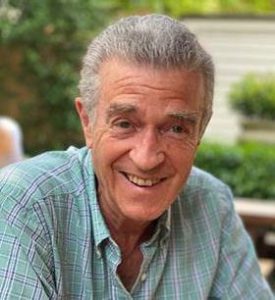
Richard Sillitoe gained B.Sc. and Ph.D. degrees from the University of London in the late Holocene before spending three truly formative years with the Chilean Geological Survey. The last 50 years have been spent swanning around the world as an independent consultant. These peregrinations involved exploration for copper, gold and other commodities in a wide variety of highly entertaining places and environments in 100 different countries. He has also succumbed to various tasks and duties on behalf of professional societies, including the SEG presidency in 1999-2000. His exploration activities and the odd publication have resulted in an embarrassment of honours, including the Haddon Forrester King Medal of the Australian Academy of Science, William Smith Medal of the Geological Society of London, Penrose Gold Medal of SEG and SGA-Newmont Gold Medal.
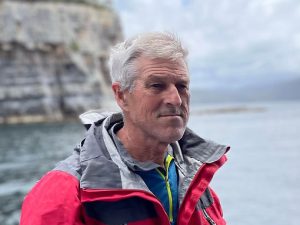
Scott Halley BSc (Hons), PhD, MSEG, MAIG
Scott has consulted to more than 150 mining and exploration companies in more than 25 countries in the last fourteen years. Having worked as an exploration geologist for 20 years prior to specialising as a geochemist means that Scott understands how geochemistry can be practically and effectively applied to exploration and mining problems. Advances in technology mean that there are significant changes in the quality of commercially available geochemical and mineralogical analysis methods every few years. One of Scott’s aims is to ensure that his clients are using the most appropriate methods and deriving the full benefit from their data.
As well as consulting, Scott is a regular presenter in the CODES MSc (Econ Geol) short course series, and a regular invited speaker at international geology conferences. Scott is the recipient of the Gibb Maitland Medal for 2012. The Gibb Maitland Medal is awarded by the Geological Society of Australia – Western Australia Division for substantial contributions to Western Australian geology, in particular for contributions in the field of mineral resources exploration.
Scott Halley received a BSc (Hons Class I) from the University of Tasmania (1982), and a PhD from Australian National University (1987). He worked as an exploration geologist for a number of Australian and international companies until 2006. Since then, he has run his own consulting business, specialising in exploration geochemistry, particularly in the use of multi-element ICP geochemistry and SWIR analysis to map far-field expressions and alteration mineral zonation patterns around hydrothermal systems.
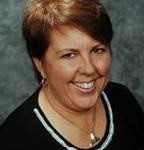
Katherine McKenna
Katherine is principal geophysicist at BHP in Perth, with over 30 years’ experience in mineral exploration, oil and gas exploration and applied geophysics. She started her career in mineral exploration in Australia and New Zealand and then moved into airborne and ground geophysical acquisition, processing and interpretation for mineral exploration companies, governments and oil and gas explorers. She has worked throughout Asia, Africa, Europe and Middle East. Katherine’s experience is in the use and integration of geophysical methods to enhance and improve geological knowledge under cover. In her present role at BHP, she is responsible for the use of geophysics for the Australasia metal exploration and generative groups. In 2021, she was awarded the ASEG 50th Anniversary Special Award for exceptional and highly distinguished contributions to the ASEG, the profession and the broader community by a member, resulting in wide recognition across the geoscience community. Katherine holds a MBA from Curtin University, a BSc in geology and geophysics from Macquarie University and a BA in Classical Languages and Ancient History from University of New England.

Dr Anthony C. Harris
Chief Geoscientist, Newcrest Mining Limited.
Dr Anthony Harris is Chief Geoscientist at Newcrest Mining Limited. He works closely with exploration and mining professionals and researchers to undertake targeted field-based work and strategic science that provides new exploration opportunities through advancing an understanding of ore systems and exploration models. Anthony is the technical lead responsible for the advancement, application and integration of new exploration technologies in Newcrest and the integration of new predictive technologies. Working with technology partners, new workflows using key technologies have been applied to the exploration process.
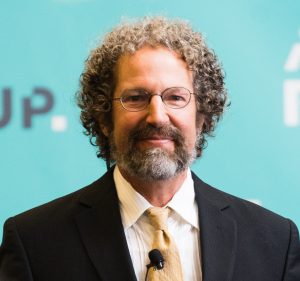
Dr. Steve Garwin
Steve has more than 34 years of experience as an exploration geologist with large and small mining companies. He has participated in the gold and copper projects of more than 35 clients in over 20 countries. He worked with Newmont Mining for ten years, including two years as Chief Geologist in Nevada. Steve is a fellow of the Society of Economic Geologists, fellow of the Australian Institute of Geoscientists and a fellow of the Australian Institute of Mining and Metallurgy.
Steve is an independent consultant based in Perth, Australia. He obtained his B.Sc. in geology from Stanford, M.Sc. from the University of British Columbia and Ph.D. (distinction) from the University of Western Australia. He is an adjunct research fellow at the Centre for Exploration Targeting at UWA and has authored and co-authored more than 40 scientific papers and abstracts. Steve is chief technical advisor to SolGold Plc. (SOLG:L and SOLG:TSX-V) and Hot Chili Ltd. (HCH:ASX), senior technical advisor to Aurania Resources Ltd. (AUR:TSX-V), and technical advisor to Japan Gold Corp. (JG:TSX-V) and Los Cerros Ltd. (LCL:ASX).
Steve is one of the leading authorities on porphyry, epithermal and Carlin-style mineralization in the circum-Pacific region. He has been involved in several, major exploration and mining projects, including the Batu Hijau porphyry Cu-Au mine in Indonesia, the gold mines of the Carlin and Battle Mountain Trends in Nevada, the Cortadera porphyry deposit cluster in northern Chile and the world-class Alpala porphyry Cu-Au-Ag deposit and Cacharposa porphyry Cu-Au deposit in Ecuador.

Dr David Huston
After completing a PhD at the University of Tasmania and postdocs at the University of Tasmania and the Geological Survey of Canada, Dr David Huston joined Geoscience Australia in 1995, beginning a career studying the age, tectonic setting and metallogenesis of mineral deposits across Australia. Initially he undertook research in the Pilbara in Western Australia, but has worked extensively throughout Australia, including in the North Australian Craton (Aileron and Tanami provinces), the Paterson Province, the Tasman Element (detailed studies in western Tasmania, northeastern Queensland and the Stavely belt in Victoria) and the North Australian Zinc Belt. As part of this research, he, along with his colleagues, have been investigating the utility of radiogenic isotope (Nd, Pb and Hf) mapping in understanding spatial and genetic controls on mineral deposits at different scales. The research has highlighted the relationship of different types of mineral deposits to isotopic features at the global to province scales – volcanic-hosted massive sulfide deposits to isotopically juvenile crust, granite-related rare metal (Sn, W, Mo) deposits to evolved crust, and shale-hosted zinc deposits to isotopically- (and geophysically-) defined crustal breaks – and to isotopic gradients at the deposit scale.
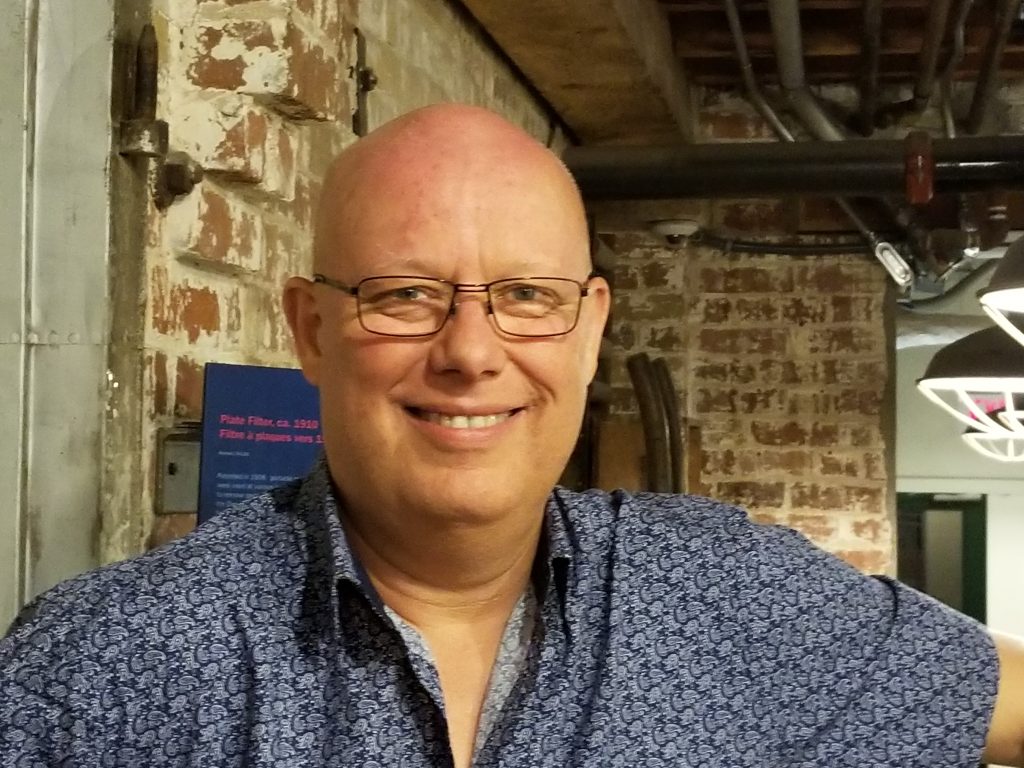
Mark Jessell is a Professor and Western Australian Fellow at the Centre for Exploration Targeting at The University of Western Australia. His scientific interests revolve around microstructure studies (the Elle platform), integration of geology and geophysics in 3D (the Loop project), and the tectonics and metallogenesis of the West African and Guyanese Cratons (WAXI & SAXI). His recently completed Western Australian Fellowship is focused on improving the links between geological and geophysical data analysis in 3D via analysis of the geological and topological uncertainty.
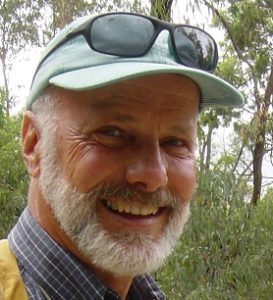
RUSSELL MEARES OAM
Russell is aseasoned explorationist with degrees from UNSW (BSc Hons) and JCUNQ (MSc). Hehas led teams exploring for precious and base metal deposits in Australia, Asia and the SouthWest Pacific, resulting in a number of discoveries. He has been a member of theNSW MineralsCouncil’sExploration Committeesince 2011, and was its inaugural Chairman until 2017. Inaddition, he has represented NSW explorers on the Council’s main Executive Committee since2016. He is also a member oftheAMEC NSWAdvisory Committee. His principal objective in theseroles has been to influence government policy tomake NSW once again an attractive explorationdestination. Also, since 2008 he has compiled and edited the Australia/NZ exploration newssection for theSociety of Economic Geologists’quarterlySEG Discoverynewsletter, with the helpof eight “cub reporters” scattered around the region. In addition, he served on the SMEDGCommittee for 13 years and he continues to mentor young professionals in our industry. In 2021he was awarded anOrder of Australia Medalforhisservices to mineral exploration.
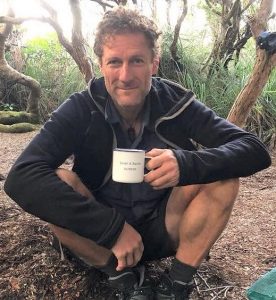
John Greenfield is Principal Exploration Geologist NSW at Newmont Australia. He has a 1st Class Honours degree in geology from the University of Wollongong and a PhD from the University of Sydney, mapping in east Lachlan, east Antarctica and central Australia. After four years mapping in the Yilgarn for the Geological Survey of WA, he joined CSIRO Exploration & Mining working on base-metal mineral systems in Broken Hill and Indonesia. As a consultant with Gold Fields Ltd, he worked in Venezuela on orogenic gold targets near Choco 10. He was with the Geological Survey of NSW for 18 years, mainly leading the regional mapping team until becoming the 15th Director in 2014 and stayed in geological management roles until 2021.
Session 4 – The future of mineral exploration
Panel Session: Is excellence in Australian mineral exploration sustainable? Moderator – Richard Blewett PSM
Australia is indeed a ‘lucky country’; it is blessed with a rich endowment of mineral resources. We have immensely benefited from the many discoveries which have massively boosted national wealth.
Has this success been mere luck? Arguably, for the first 150 years of colonial settlement, it was indeed luck as many of our big deposits presented at surface. More recently, however, sophisticated exploration driven by good science, good technology and great talent have generated stunning success as we explore for the concealed resources of the future. If we take discovery rate and exploration spend as one measure of excellence, then research by Minex Consulting shows that in the decade up to 2020 Australia accounted for 12% of global exploration spend and 15% of all discoveries. During the same decade Australia’s ‘bang-per-buck’ ratio was 72 cents per dollar spent on exploration, which well exceeds the global average of 49 cents.
Can this excellence be sustained? The minerals industry faces major challenges; some of which are regulatory; but most are technical and social.
In terms of technical challenges we continue to face the difficulty of exploring under the vast cover regions of the continent. To help tackle this issue governments have generated a vast array of new pre competitive geoscience data. These and industry datasets have enabled advanced analytics such as machine learning, artificial intelligence and other such technologies to be increasingly deployed for target generation. Australia’s research community is world-class and it continues to develop sophisticated tools and methods, as well as mineral systems understanding that are increasingly predictive. These developments mean that to be proficient and successful as a modern explorer requires life-long learning.
The exploration industry faces social and cultural challenges within the industry as well as broader community concerns. Within the industry there are issues of diversity, inclusion and an ageing workforce. Addressing community concerns also requires inclusion, and tact.
To consider such issues we are pleased to have a panel of four eminent thought leaders who will share their perspectives and reflections. We will hear from Genna McDonagh (young professional), Richard Lilly (education & training), Pip Sivwright (mineral exploration) and David Giles (research & technology) on whether excellence in Australian mineral exploration is indeed sustainable.
The session will be interactive and include audience participation. This will be an enjoyable, informative and thought-provoking session.
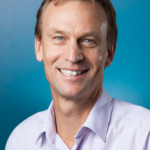
Dr Richard Blewett PSM is currently a Director of a junior private company Weethalle Gold and a consulting services company GeoSystems Consulting Pty Ltd.
Prior to these roles, Richard was the General Manager of the Minerals Systems Branch at Geoscience Australia (up to 2021). He was responsible for leading GA’s minerals science programme, including carriage of the minerals component of the $225 million Exploring for the Future programme, as well as the promotion of Australia as an attractive investment destination for minerals exploration. Richard wrote the National Mineral Exploration Strategy, the Resources Data Strategy and was co-author of the UNCOVER strategy.
Richard is interested in the management and leadership of science and in geoscience education for the community.
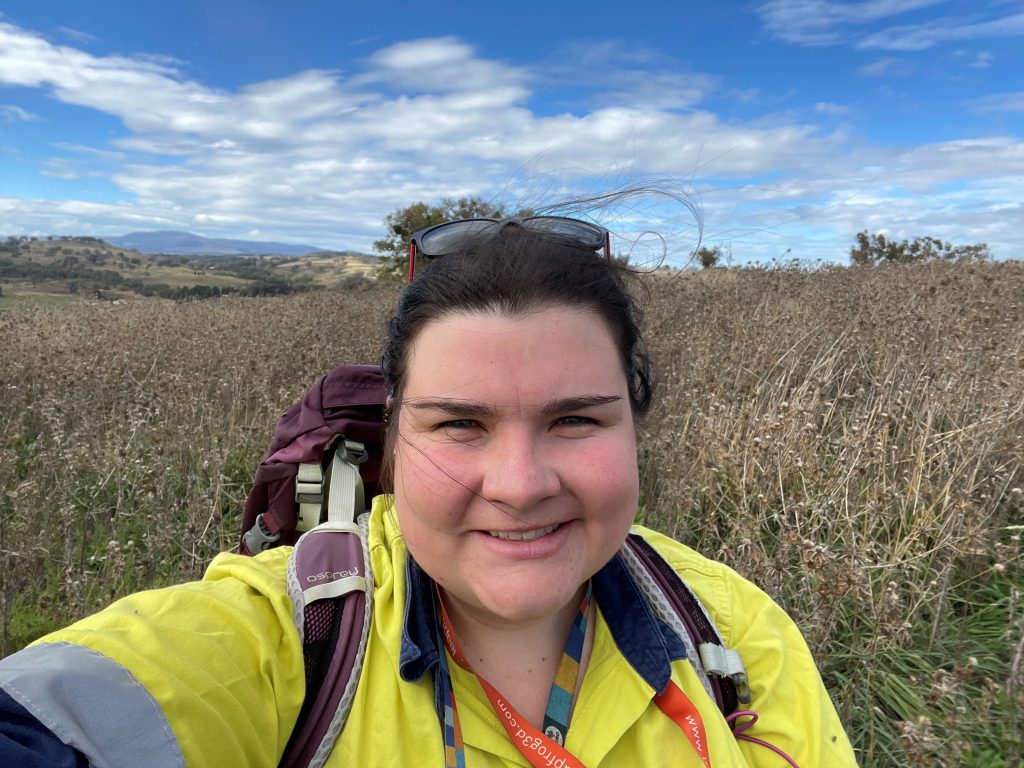
Genna McDonagh
Genna is an exploration geologist with 7 years of experience working across four different states and has a passion for engaging and enabling the next generation of geoscientists.
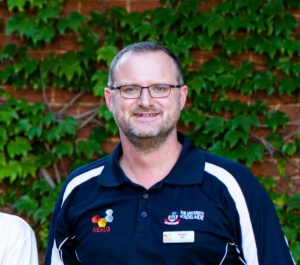
Dr. Richard Lilly, BSc (Hons), PhD, FSEG, MAusIMM, MAIG
Richard Lilly is the Program Leader and co-founder of the National Exploration Undercover School (NExUS) at the University of Adelaide, and coordinates a range of applied economic geology research projects for companies including OZ Minerals and Mount Isa Mines.
Richard completed his undergraduate studies and PhD at Cardiff University (UK) in collaboration with the British Geological Survey and worked with Rio Tinto and Chevron before joining Mount Isa Mines (formally Xstrata Copper) exploration in 2007 based in Mount Isa, Queensland. In his role as senior exploration geologist he instigated and co-supervised a wide range of applied research projects with the aim of improving exploration targeting, before transitioning to an industry funded academic role in 2015. Since 2018 Richard has also led the NExUS program, a 3-week summer school, which aims to prepare Australia’s most promising geoscientists for a career in the minerals industry. Richard also lectures in economic geology and is involved with several national geoscience education initiatives.
Richard is passionate about rocks, advancing our understanding of ore systems, exploration through cover and teaching/mentoring the next generation of geoscientists.
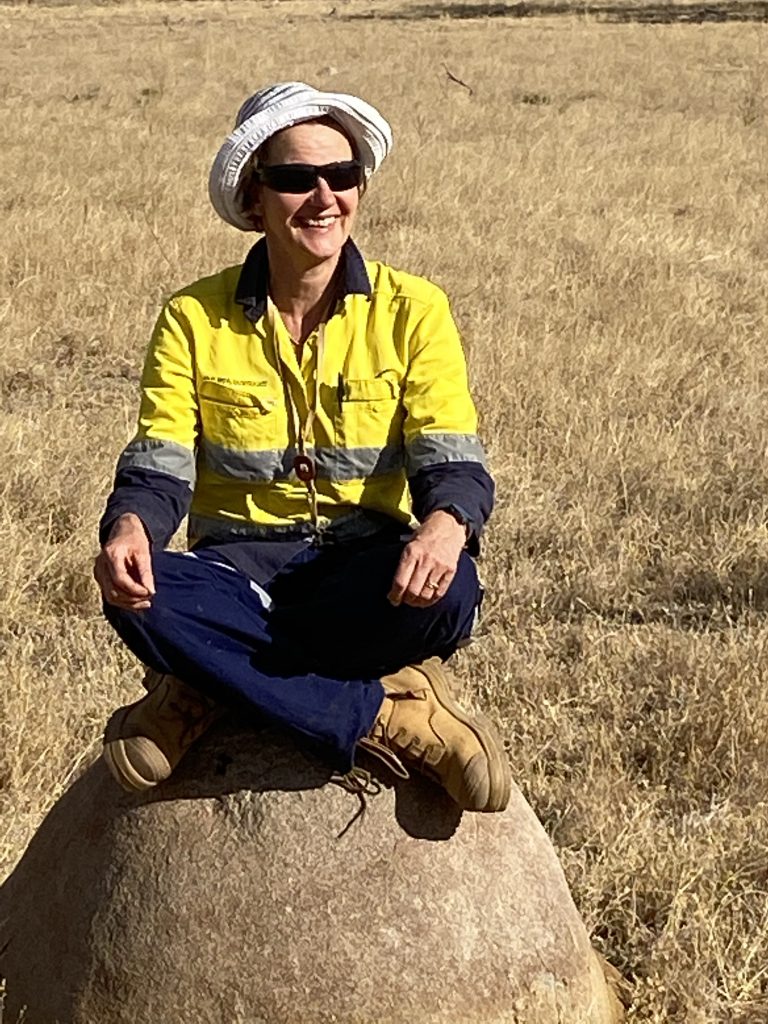
Philippa Sivwright
Philippa is a geologist who started her career in the gold mining industry over 25 years ago. Philippa worked in a variety of geological roles at an operational level before being promoted into a leadership role. She currently the Director for Regional Exploration in the region, overseeing a team of talented geoscientists with a focus on new discoveries. . Her career with Newmont, includes time in North Queensland, Murchison of WA, Tanami Operations in NT, and Turkey. She has worked in remote locations, regional camps, FIFO and in small residential towns.
As a member of the Regional Exploration Leadership Group, she helps define the strategic direction of exploration activities within the region. One of her key strengths is dealing with people and fostering strong working relationships across all levels within the organization.
A mentor for the Women in Mining WA (WIMWA) for many years which she finds the experience both fun and rewarding. Philippa is a graduate of in Next Generation of Female Leaders Course conducted by Women On Boards.
Achieving a work life balance is important to Philippa. She seeks to encourage companies and employees to see the mutual benefits. She has lived this, which has seen her career, Newmont and her family benefit from the juggling act.
Philippa loves the outdoors, camping and any adventurous challenge…And of course she likes rocks !
An avid ocean swimmer, she held an age group record for a duo crossing of the Rottnest Channel for over 5 years.

Prof David Giles is John Ralston Chair of Minerals and Resources Engineering at the Future Industries Institute, University of South Australia and Chief Scientific Officer of MinEx CRC. He has worked at the interface between academia and the minerals industry for his entire career; as an exploration and project geologist (1993-1996); as a PhD candidate and industry-linked post-doctoral researcher (1996-2005) and as the inaugural State of South Australia Chair of Mineral Exploration (2006-2016). Between 2010 and 2018 Prof. Giles was Program 3 (Targeting) Leader in the Deep Exploration Technologies CRC. As Chief Scientific Officer of MinEx CRC (2019-2028) Prof Giles’ role is to manage, support and champion the research efforts of a multidisciplinary team, distributed across industry, government and academia. The National Drilling Initiative is a key research program within MinEx CRC, designed to i) collect samples from the vast volumes of unexplored (potentially) prospective rocks buried beneath Australia’s extensive areas of shallow cover and ii) test, improve and validate novel exploration technologies, focused on and around the drilling platform and optimized for efficient exploration under cover.

